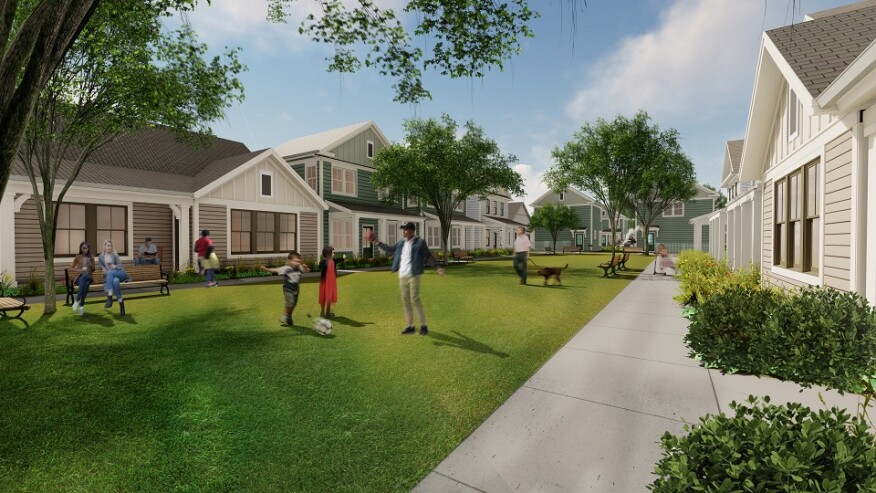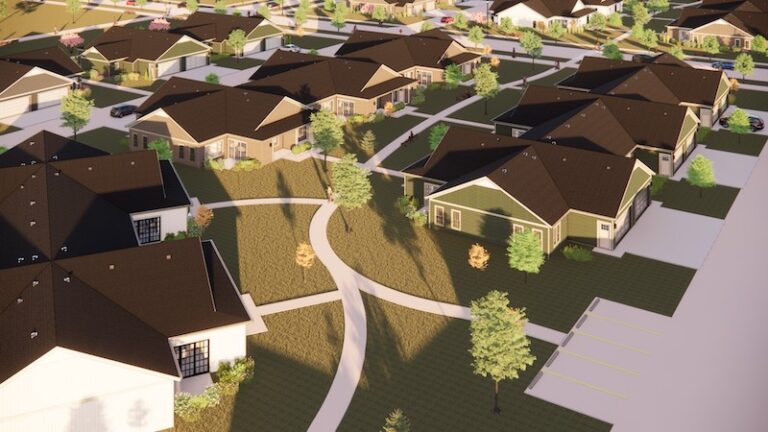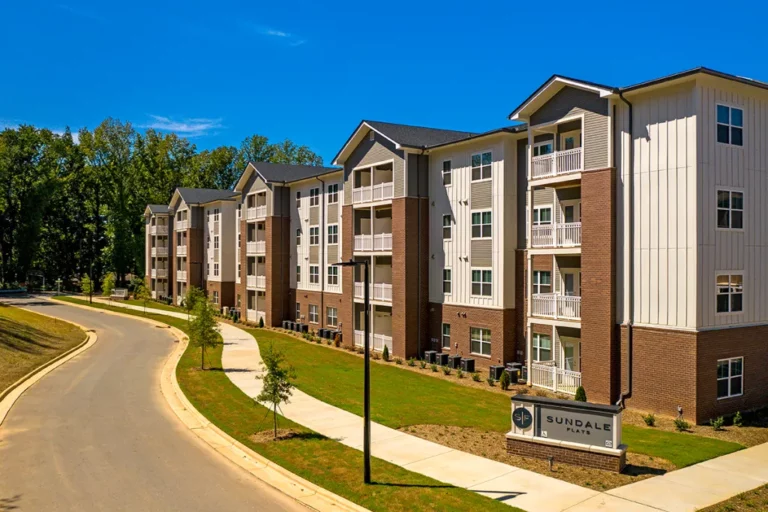Nobody likes to think of oneself as an amateur in the field of real estate. Enterprising, energized newcomers likely rather regard themselves as eagle-eyed, bold, opportunists, unencumbered by hidebound, legacy thinking.
Source: ‘Complicated’ ’23 Market Means Evolving BTR Design And Density John McManus, The Builder’s Daily
Nobody likes to think of oneself as an amateur in the field of real estate. Enterprising, energized newcomers likely rather regard themselves as eagle-eyed, bold, opportunists, unencumbered by hidebound, legacy thinking.
Real estate markets and their cyclical gravitational sway over fortunes, empires, and livelihoods don’t care one way or another. It’s never so personal. The field is an equal opportunity leveler of dreams and strategies. It’s just that experienced pros in the space – it seems – tend to have one thing over those who are not. They’ve learned to have a back-up to a back-up plan for when their plans and wagers go sideways or upside down.
Amateurs, on the other hand … well, real estate tends to be brutal with those without past-cycle experience, lessons in humility, and Plans B, C, and D, for when, not if, things run off the rails.
This describes the high-stakes single-family build to rent segment of residential real estate and construction right now. A year ago, it was blue sky, with a future-so-bright-you-had-to-wear-shades. Now, rents are softening. Money for many is trapped in frozen capital markets, and pro formas that no one doubted would be slam dunks in an easy money reality now often look like fantasyland.

It’s such a dynamic market,” says Alex Pollack, director of partnerships at Arizona-based full-stack technology-enabled general contractor Mosaic, which started 1,000 new single-family homes in Q4 2022, and has gone up a fast-steep learning curve since its 2017 genesis. “This year alone we’ve touched 75 projects in six states, and our knowledge base now reflects 24,000 homes in the six or so years we’ve been at it.”
What’s proved out beyond a doubt – and it didn’t take a pandemic-era gold rush to prove it — is that single-family homes and neighborhoods intentionally built as rentals is a real estate keeper for households, for investors, for localities, and for market rate business models. Further, as timing goes, the 2020s writ large is a bumper crop period.
Then, of course, there are the details. You know, the ones that will filter out those individuals and firms who’ll skyrocket in value and value creation by serving the BTR market over the next decade plus from individuals and firms that won’t be around in the next year or so. For shovel-ready, shovels-in-the-ground, and recently completed BTR communities and neighborhoods that leased up in strong rent-power markets, it’s the best of times.
There’s still a ton of capital out there, but both equity and debt have gotten exponentially more discriminating in what they’re going to commit to now. They want sophisticated, experience players,” says Pollack. “Before the Fed started hiking interest rates, we were seeing lots of 300 and 400 unit communities and an enormously diverse market of comers into the space. Now, leader on these projects face having to pull millions of dollars of cost – both on the construction and the property operation and management – to make them pencil in an environment where mortgage interests weigh on the cost of capital and there’s downward payment power in the rent revenue model.”
For those projects with billions of dollars of development and planning bets already put in place – but still waiting for permits – it’s another story altogether, a harsh one, a tale of two BTR markets.
What few outsiders appreciate is the diversity of professional real estate investor-developers who’ve entered the build-to-rent space, but it’s an important factor to take stock of,” says Pollack. “Most people hear single-family-rental and think of the single-family builder players and that’s all. But, you’ve also got multifamily developers who’ve made big investments in the space now as well, and further, you’ve got hospitality real estate players also in the space.”
Since Mosaic’s strategic priority focus on the build to rent juggernaut pivoted about 18 months ago, the company has had opportunities to serve across these business vantage points and glean insight into what will make for outlier opportunities, even during the capital pause.
You’re seeing an evolution to far more narrowed, lower-unit-count, higher-density, infill neighborhoods on the one hand,” says Pollack. “On the other, while simplifying, standardizing and value engineering product to bring down input costs is more common, you’re also seeing designs for affordability veer toward larger square-footage units to accommodate multi-generational households and increasingly common roommate situations.”
Pollack notes that a key learning from the variety of residential and commercial development and construction partners Mosaic has dealt with in its build to rent projects is that a hybrid – best of both worlds – construction trades and materials supply chain value stream works best to achieve optimal cost opportunity and the kind of scaling these projects need to pencil these days.
Working with the residential, single-family construction crew partners makes for a more cost efficient construction operation,” Pollack says. “However, when it comes to sourcing materials, it’s the multifamily/commercial vendors – where there are fewer options but a more turn-key solution at more scalable level, the apartment players have that nailed down.”
As 2022 winds down and a new cohort of communities breaks ground, Pollack notes, the new project amenity packages, densities, and price positioning will fork into two broad approaches, one specifically targeting rent-for-financial reasons households, and one catering to a higher-end rent-by-choice household that perfers horizontal multifamily versus vertical.
It’s all about what you have to do to get a project to pencil,” says Pollack. “You’ll make hard choices about whether you have an in-community clubhouse, especially if there’s a nearby gym in the locality, and the options for trails, or a gated community for added security, or other costly amenities, versus offering a rental options that younger households find to be more attainable.


![Top 10 Emerging Multifamily Markets [Colorado Springs, CO Makes the List]](http://www.laidesigngroup.com/wp-content/uploads/2023/09/simi-iluyomade-MLbnzuPaKVk-unsplash-768x509.jpg)
